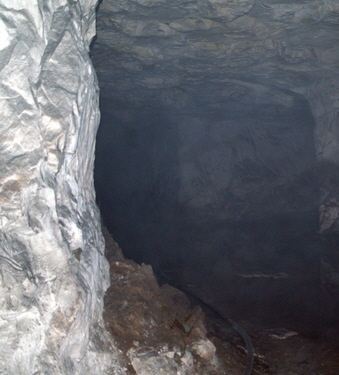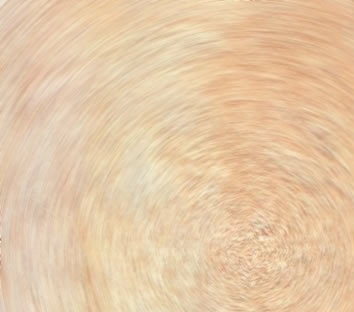|
|
|
For three months now, they had toiled together in the During this period of time, Lemaire had come to hate Diligencio. At first, Diligencio’s endless goodwill and cheer were positively refreshing, and his boundless enthusiasm had always brought a smile to Lemaire’s scowling face. This perpetually happy man sprang from his cot in the morning as if in earnest expectation that he should find Christmas gifts left for him by the crumbling chimney. His energies continued throughout the day. In the mine, he labored with a near glee, as if it were his lifelong ambition to be entombed in a hole in the earth. Moreover, as he travailed, he talked incessantly. He talked of the weather, of philosophy, of books that he had once read, and of people he had once known. Further, Lemaire had begun to suspect that Diligencio’s industry was doing him injury. For by his display, Lemaire’s once thoroughly acceptable exertions appeared positively indolent, and Lemaire had gradually come to the belief that this contrast would be his undoing, and almost certainly result in the loss of his situation. He wondered if old man Fiore was not in secret consultation with Diligencio, somehow plotting to be rid of the more slothful of the two. In an attempt to reduce the disparity, efforts were made to persuade Diligencio to slow the pace of his laboring, but these were rebuffed (which, in Lemaire’s mind, only served to confirm that which was becoming obvious). After this, Lemaire strained to bridge the gap with increased animation of his own, but found himself wanting in both strength and verve, and imagined that as his rhythm increased, so did Diligencio’s, for no other purpose than to maintain the spread. Through all of this, Diligencio betrayed no outward sign that any change had taken place in his work environment. On the contrary, he just continued shoveling – talking and shoveling. It was in this poisoned atmosphere that the two entered the sand-mine together for the last time.Lemaire had not slept well (after an evening that included more than one bottle of poor quality wine), and was, as usual, harboring ill will toward humanity as a whole, and Diligencio in particular. Diligencio, for his part, was in the seventeenth minute of recounting his dreams from the night before and musing on what deep thinkers of the day had to say about such things. As the pair arrived at the rear of the cavern, Diligencio lit the oil lamp, and placing it on the floor about ten feet from them, rattled on about his visions. At about this time, Lemaire became aware of the onslaught of a headache of terrific proportions, as if the teeth of a viper were being driven into his temples. Turning away from the endless monologue, he pressed his palms into the sides of his head, visualizing that he was squeezing the pain out through a hole in the top of his skull. And still, Diligencio talked. As the spikes twisted inside his brain, Lemaire could tolerate no more. Whirling, he grabbed the stunned Diligencio (who had been silenced in the middle of a word, which still dangled from his open mouth) by the lapels of his coat, and screaming curses into the poor man’s face, drove him into the rearmost wall of the mine. As the helpless body of his coworker collided with the sand, Lemaire reflexively tensed the muscles in his arms, anticipating impact and recoil. But there was neither. Instead, what Lemaire saw turned his rage into horror, for the man did not strike the sand, but rather, he passed into it, disappearing completely within. As he did, Lemaire, suddenly off balance, pitched forward, and felt himself being carried in with the weight of Diligencio, whose face vanished beneath the surface of the wall. Lemaire instinctively released the man’s lapels, and felt him fall away as he regained his footing and ripped his own arms free of the coarse powder. Stumbling backwards, he fell to the floor of the mine, knocking over the shovels as he did. All that remained of Diligencio was his left shoe, lying at the base of the wall. Lemaire jumped to his feet and fled to the mouth of the sand-mine. Once there, he felt secure enough to stare back into the dark recesses of the mine, which was only dimly lit by the single oil lamp placed there by Diligencio. As he regained his senses, Lemaire contemplated what had occurred, and began to doubt his initial interpretation of what he had witnessed. Sand, he reckoned, is solid, it is true, but also has some of the characteristics of a fluid. Is it not possible that a weakening of the wall at that place had cause it to rain down upon his adversary, giving the appearance of fluidity? Certainly in the excitement of the moment, coupled with the extreme headache with which he had been suffering (and from which he suffered no longer), he may have become temporarily delusional, and saw the burial of Diligencio (wrongly) as absorption. “Unquestionably,” Lemaire thought, “this is what must have happened, and now I cower at the mouth of the tomb, while poor Diligencio suffocates!” And yet, he hesitated. To return for the rescue bore risks of its own. What if the saved Diligencio feels not gratitude, but conversely, erupts into fury at the near loss of life resulting from the unprovoked attack upon him? What if he hands over his assailant to the courts, and insists upon the justice of hard labor? And if he were saved alive, but later died, having told the tale, would Lemaire not be judged as a murderer? Who would argue in the defense of such an unlikable (for Lemaire knew that he was unlikable) person as he? Assuredly, under all but the most optimistic of scenarios, his future would lie with the hangman’s noose! Assuming that the back wall of the mine had indeed partially collapsed (and Lemaire had now convinced himself that it had) the best outcomes would all begin with the perishing of Diligencio. Once it was certain that no uncomfortable details would come from his sand filled mouth, Lemaire could craft a heroic tale of danger, valor and narrow escape from the jaws of death. Having come to this realization, and with self-preservation in the balance, he determined to return to the rear of the cavern, wait an appropriate amount of time, and only then to make an effort to extract the lifeless body of Diligencio from the sand. Upon reaching the full depth of the pit, Lemaire was surprised to see that the rear edifice had not, as he had deluded himself into believing, fractured at all. The flickering of the oil lamp showed it to be as any other part of the mine, and no distinction could, visually, be made between them. Lemaire stood there for a moment, perplexed, and wondered if he had not somehow dreamt it all, and that he would eventually find Diligencio unharmed, and no doubt chattering away about how strangely Lemaire had behaved earlier, perhaps after having some bad wine. To confirm his latest theory, Lemaire gingerly placed his right hand, with his palm facing outward, on the cold sand of the rear wall and gently applied pressure. Initially, there was no change in resistance, so Lemaire was emboldened to push harder. As he did, the opposition suddenly dissipated, and he fell, first with his arm, then with his head, through the aqueous membrane of the sand-mine. As Lemaire passed through the outer shell of the wall, he closed his eyes and was only aware of muffled, garbled noises, such as might be heard under water when there is loud conversation above. Then, as his head cleared the sheathing, he immediately was overcome with sounds. Shrieking, howling, screaming sounds such that he had never heard before, grew louder and then quieter, then louder again as though they rolled in on the waves of a mighty ocean. As if by electrical impulse, he opened his eyes to a scene that was, at once, hideous and confusing. Lemaire saw below him, at a distance of maybe twenty to thirty yards, a group of what appeared to be all manner of pigs, goats and dogs, upright on their hind legs, dancing in wild gesticulations, with faces contorted in pain, around a small fire, which seemed to be fueled with human bones. He heard the goats scream for the blood of the pig, and for the flesh of the dog, while the pigs shrieked equally for the blood of the goat and the flesh of the dog. In an instant, they had stopped their dance and seized upon one of the dogs, and the unfortunate creature was soon ripped to shreds, and the survivors engorged themselves on the flesh, blood and entrails. While this horrible spectacle was still ongoing, Lemaire became conscious of a new, more terrifying noise than he had yet heard. He turned his head toward the sound and caught sight of the piteous Diligencio, in the grasp of a number of the hideous beasts, flailing wildly and crying out in torment, but unable to extricate himself. His sunken, ghastly eyes pleaded for rescue, as a child lost in the sea. Lemaire wrenched himself from the grip of the wall, and flew out backwards onto the sandy earth, where he lay for some time, unable to free himself from the hellish nightmare burned into his eyes. Slowly regaining his senses, Lemaire concluded that he must have been inside the sand for only but a few moments, as he could not remember having breathed, and he wondered if the poor, miserable Diligencio still breathed. What an abominable fate! Guilt now weighed somewhat upon him, and he began to wonder if there was anything he could have done, or if there was anything he could still do. After a time, Lemaire decided that he would make one final effort to effect a rescue of Diligencio, and that, if it could not be safely accomplished (and he was fairly sold on the fact that it could not), he would consider himself purged of responsibility. Once this penance was fulfilled, he would move on with his life, and try his best to forget about what he had seen on this day. As he left the mine to acquire what was to be the instrument of Diligencio’s freedom, Lemaire was still troubled by the risks involved in retrieving Diligencio alive, but thought that his daring liberation, combined with the fantastic revelations from beneath the sand, would more than cover his earlier transgressions. In short order, Lemaire returned to the sand-mine with a very long length of sturdy sailing rope, which he secured to an iron hitching post, located not far from the mouth of the cavern. The rope was exceedingly heavy and it took great effort to haul it into the mine, and to then punch it through the wall of sand. He fed it down through the wall, hoping that perhaps Diligencio would just grab it and climb to liberty, but, alas, no such thing occurred, and Lemaire knew that he would have to enter the portal again, if for no other reason than to confirm that his effort was hopeless (for all he knew Diligencio could have been devoured already). After lashing the rope securely to his waist, Lemaire took a deep breath and pushed his head through the sand. Once again came the howls and shrieks, but this time he opened his eyes immediately, and he saw that they were directed at him. The goats and pigs and dogs, their fiendish mouths dripping with fresh blood, leapt at him and entreated him to come down from where he was, and to save Diligencio, who, much to Lemaire’s astonishment, still lived. Of course, to live is a relative term, for in addition to still being restrained by his oppressors, it looked as though the creatures had begun to pick at him, tearing off small pieces of flesh, precisely the way one nibbles at a Christmas goose before it is set out to be carved. For his part, Diligencio seemed to have lost his mind, and to have reverted to some animal mentality, for he noticed not the rope that dangled before him, but rather drew in breath only to scream it out again in the most pitiful manner imaginable. He was completely deranged. However, it was not lost on the demons that a gateway to the human world had presented itself, for they began to make every effort, using their teeth, paws, and claws, to ascend the rope. At this prospect Lemaire convulsed, and taking hold of the rope, he easily shook them off of it, and giving up poor Diligencio to his fate, hurriedly pulled it out of the sand. The time had arrived, he resolved, to go and get help. Even if miserable Diligencio couldn’t be saved, those evil brutes had to be disposed of, and after all, they were only animals, and should be able to be shot like any other. Leaving the rope on the floor of the mine, Lemaire rushed to Mr. Fiore’s shop, where he tried to explain to the old man, as calmly as it was possible to do, that there was a passageway to hell in the wall of the mine, and that Diligencio had fallen into it, and that the goats and pigs and dogs were eating him and that he (Lemaire) needed to be given a gun right away. For reasons Lemaire could not comprehend, no loaded gun was forthcoming. What Mr. Fiore decided to do was to gather a few well-armed shopkeepers from the immediate vicinity, and take them together with Lemaire, to the sand-mine. Once they reached their destination, Lemaire launched again into a frenzied recounting of the events of the day (conveniently leaving out the part where he pushed Diligencio into hell) and then began to excitedly feel about the walls of the mine for the portal. Soon he was joined in this by all present, and this sand squeezing continued for nearly thirty minutes, to no avail. As the party broke up, Mr. Fiore was congratulated by the others for having had the good sense not to hand over weaponry to such lunatics as Lemaire, and then again consoled for having lost two perfectly good laborers in the same morning (with no evidence to the contrary, it was presumed that Diligencio had merely moved on). As for Lemaire, his protestations did not subside, but to a great extent increased, and shortly thereafter was able to take up new quarters in the local asylum. Considered to be a danger to himself and others, he was rather tightly restrained with a straitjacket, and placed in a private room, until such time as he should regain his composure. Having been welcomed to his room, two guards watched as he thrashed about, slamming himself angrily into the walls, spewing forth endless streams of nonsensical commentary regarding the goats and pigs and dogs that dance around the fire and scream for blood and flesh. As the caretakers drifted away, they discussed among themselves the predictability of the new lock ups, and how they always went through this period of self destruction, and they began to debate how long this one would go on. It was then that they noticed that the noises had already stopped, and they were pleasantly surprised. This meant that they would be able to get some sleep tonight. Returning to the cell, with the intention of complementing their guest on his acceptance of his new reality, they discovered instead that the cell was entirely empty, with the exception of one of Lemaire’s slippers, which was lying at the base of the cell wall.
|
 pit. They had shared the same putrid air for ten hours a day, six days a week, shoveling and sweating in the sand-mine of Fiore, the glassmaker. And every day, when the backbreaking work was finished, they would return to their dismal lodging above old Fiore’s shop, and there they would eat, sitting on the filthy floor, and sleep on canvas cots.
pit. They had shared the same putrid air for ten hours a day, six days a week, shoveling and sweating in the sand-mine of Fiore, the glassmaker. And every day, when the backbreaking work was finished, they would return to their dismal lodging above old Fiore’s shop, and there they would eat, sitting on the filthy floor, and sleep on canvas cots. 
